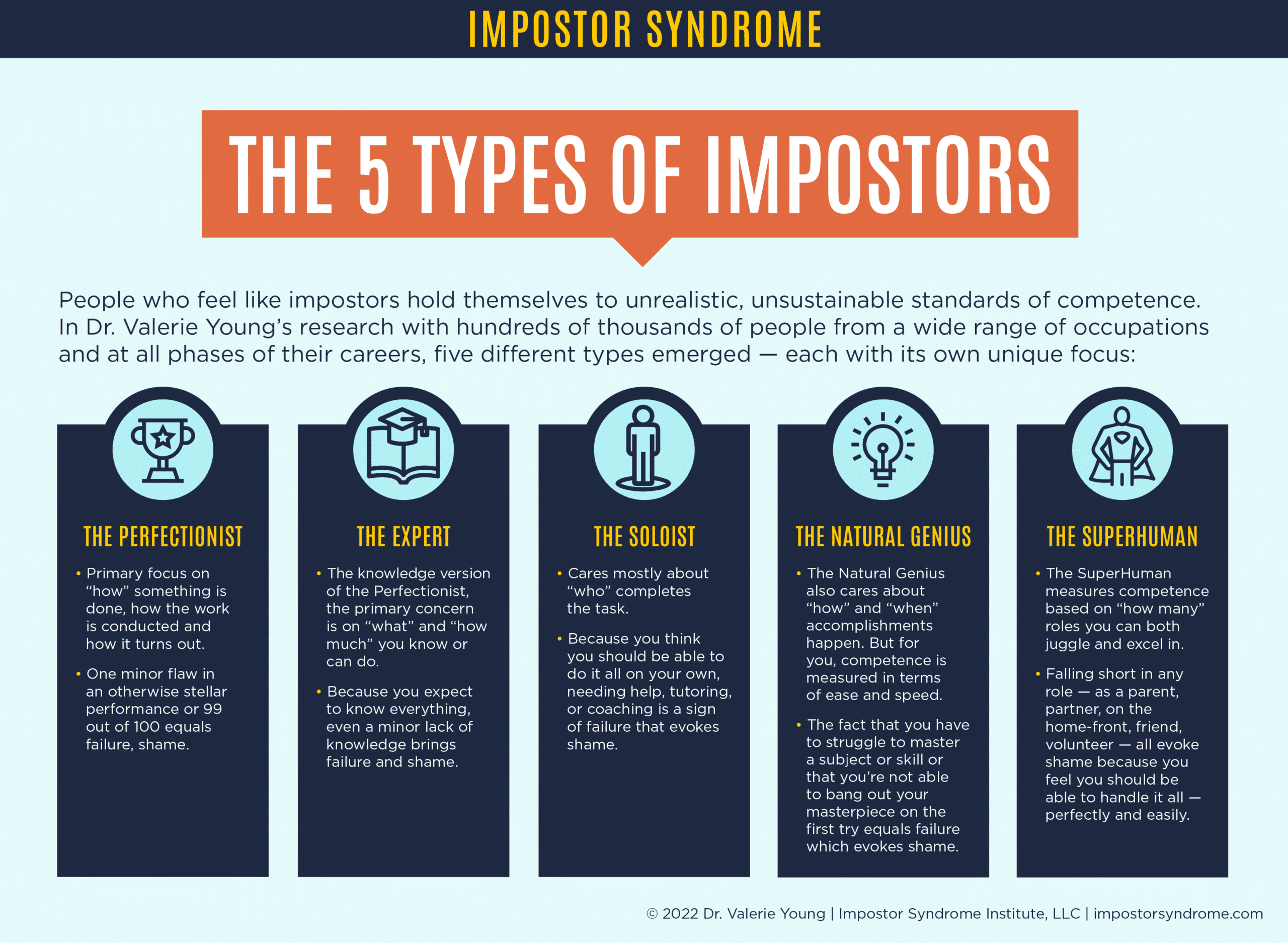What’s In Your Competence Rulebook?
I’ve spent close to four decades helping people who feel like impostors, fakes, and frauds.
In that time, I’ve come to an important conclusion:
If you want to truly put yourself on the fast track to feeling as bright and capable as you really are, then nothing — and I do mean nothing — will get you there quicker than adjusting your beliefs about what it takes to be competent.
Why? Because the impostor syndrome goes beyond a mere lack of confidence.
Everyone experiences bouts of self-doubt from time to time — especially when attempting something new.
But because “impostors” have insanely high self-expectations, the self-doubt is chronic.
It’s also possible to doubt your abilities without believing that you ultimately succeeded because of some sleight of hand or that you are fooling others.
A person could have normal jitters before, say getting up to give their first speech, do well, and then draw from this experience to feel more confident about the next time.
But “impostors” don’t think this way.
Because no matter how well you did or how loud the applause, you find a way to explain them away.
It was a great audience. They just like me. Fooled ’em again.
So wins don’t produce any real bump in confidence.
This is where it helps to understand the 5 types of impostor syndrome.
“If I Was REALLY Intelligent… Capable… Competent”

Twenty years of well-documented research, by leading expert in motivation and personality psychology Carol Dweck, author of Mindset, confirmed what I’d discovered from my own research in the early 1980s.
Namely, your notion of what it means to be competent has a powerful impact on how competent you feel. It’s also at the core of impostor feelings.
It’s why one of the first exercises I created for my impostor syndrome workshops was called, “What’s in Your Rule Book?” Some three decades later and I still use this exercise today.
Everyone has unconscious rules in their head about what it means to be competent. These rules tend to begin with “should,” “always,” or “never.”
Whether it’s ivy league students or engineers at Boeing or IT managers at IBM — the exercise elicits the same basic rules.
If I were really intelligent, capable, competent…
- I should know everything in my field
- I should get it right the first time
- I should excel in everything I do
- I’d always know the answer
- I’d always understand what I’m reading
- I’d always feel confident
- I’d never make a mistake
- I’d never be confused
- I’d never need help
My personal favorite was the Stanford Ph.D. student who said, “I feel like I should already know what I came here to learn.”
Which of course, is absurd.

I’ve done this exercise with people from all walks of life and at all phases of their careers.
Nurses, engineers, professors, biologists, Ph.D. candidates, social workers, physicians, jewelers, accountants, financial advisers, senior executives, chemists, programmers, entrepreneurs, attorneys — even romance book writers.
And each time it confirms my early findings.
Namely, because people who feel like impostors hold themselves to an unrealistic and unsustainable standard of competence, falling short of this standard evokes shame.
However, it was only after doing the rule book exercise with tens of thousands of people that I made a second discovery.
Impostors don’t all experience failure-related shame the same way. And the reason is that they don’t all define competence the same way.
What emerged from the rules exercise are five different Competence Types (commonly referred to as the 5 types of impostor syndrome) — each with its own unique focus:
- The Perfectionist’s primary focus is on “how” something is done. This includes how the work is conducted and how it turns out. One minor flaw in an otherwise stellar performance or 99 out of 100 equals failure and thus shame.
- The Expert is the knowledge version of the Perfectionist. Here, the primary concern is on “what” and “how much” you know or can do. Because you expect to know everything, even a minor lack of knowledge denotes failure and shame.
- The Soloist cares mostly about “who” completes the task. To make it on the achievement list, it has to be you and you alone. Because you think you need to do and figure out everything on your own, needing help is a sign of failure that evokes shame.
- The Natural Genius also cares about “how” and “when” accomplishments happen. But for you, competence is measured in terms of ease and speed. The fact that you have to struggle to master a subject or skill or that you’re not able to bang out your masterpiece on the first try equals failure which evokes shame.
- The Superhuman measures competence based on “how many” roles they can both juggle and excel in. Falling short in any role — as a manager, team member, parent, partner, friend, volunteer — all evoke shame because they feel they should be able to handle it all — perfectly and easily.
Sound familiar?
The fact that everyone else sees a highly capable individual where you see an inadequate fraud, is a pretty good indicator that you operate from a competence playbook that bears little resemblance to reality.
It doesn’t matter how intelligent or talented or skilled you are right now, I have news for you.
You are never going to consistently reach that insanely high bar you’ve set for yourself – ever.
That’s why if you truly want to beat the impostor syndrome you must adjust your self-limiting thinking as to what it takes to be “competent.” This redefining process is bar none, your fastest path to confidence.
Worth Repeating
I know you want to stop feeling like an impostor. But that’s not how it works.
In fact, feelings are the last to change.
Do you want to stop feeling like an impostor? Then you have to stop thinking like an impostor.
And rewriting your inner rule book by understanding the 5 types of impostor syndrome is hands-down the best place to start.
An extensive description of the 5 competence types, including solutions for each, can be found in Chapter 6: The Competence Rulebook for Mere Mortals in The Secret Thoughts of Successful Women: Why Capable People Suffer from Impostor Syndrome and How to Thrive in Spite of It*, Valerie Young, Crown Business, 2011
Click here to download a free chapter
You are welcome to reprint this post with the bio below.




